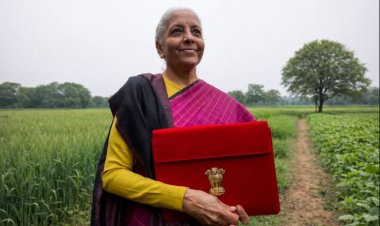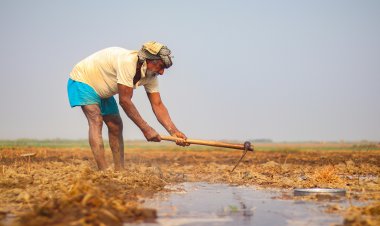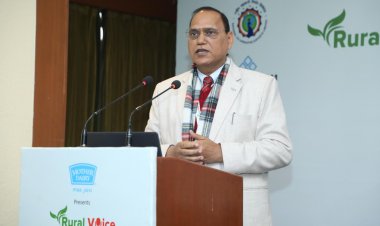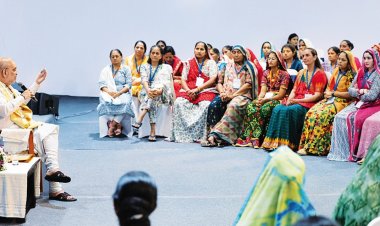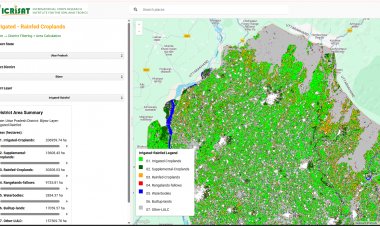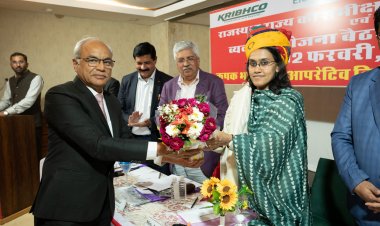Enhance market linkage and incentivise investment is the demand from Industry for Agriculture in the Budget
Government should increase market linkages and incentivise investment in the agriculture sector are some of the suggestions from the agro industry for the upcoming budget 2024-25
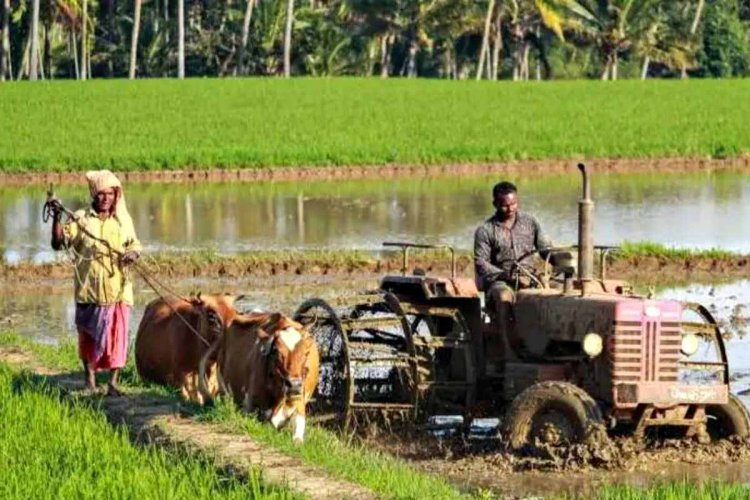
Government should increase market likages and incentivise investment in the agriculture sector are some of the suggestions from the agro industry for the upcoming budget 2024-25.
Simon Wiebusch, President, Bayer South Asia, stated “Agriculture continues to power the Indian economy and provide food security to the nation. I am hopeful that the government will use this year’s budget to further its commitment towards farmer welfare through measures to enhance market linkages, increase access to quality inputs, promote digital technologies, and accelerate the creation of more farmer collectives. Additionally, incentivizing investments to support research in the sector, especially in regenerative agriculture and climate-smart practices, can further catalyze sustainable growth, ensuring a steady rise in farmer incomes. India has the potential to emerge as a global player in the horticulture sector, and fiscal policies aimed at creating the right infrastructure and ecosystem for horticulture will not only drive rural livelihoods but also bring in foreign exchange through exports.”
Shashank Singh, Co-Founder of Poshn, highlighted that the Interim Budget of 2024 allocated ₹1.17 lakh crores to the Ministry of Agriculture, marking a ₹1997 crore increase from the previous budget. He anticipates that the upcoming budget will maintain continuity in key measures outlined earlier, focusing on enhancing farmers' income, reducing food waste, managing price pressures, and fostering growth in micro and small food processors. Initiatives such as PM Kisan Nidhi Yojana and PM Fasal Bima Yojana, which provide minimum income support and crop insurance, respectively, are expected to continue. These measures aim to bolster the agricultural and food processing sectors, driving efficient growth and sustainability.
Singh also emphasized that, despite contributing 8.5% to global agricultural production, India just holds a 2% share in the global agri-export market. This disparity necessitates targeted government interventions. Enhancing export competitiveness for key commodities like rice, wheat, and pulses through improvements in crop quality, supply chain efficiency, and production is essential. He also urged government to adopt climate resilient agricultural practices to ensure sustainable growth in the sector.
Raju Kapoor, Director, Industry & Public Affairs, FMC India, emphasized the challenging year for the agricultural sector, with agricultural growth diminishing from 4.7% last year to 1.4% due to erratic monsoon patterns. He stated, "This budget presents a crucial opportunity to address these concerns and propel the sector towards a brighter future. The government must prioritize agriculture and rural India, focusing on making farmers more resilient while simultaneously mitigating food inflation that disproportionately affects society's underprivileged segments."
Kapoor urged the government to acknowledge the stark reality of food inflation and its impact on the most vulnerable sections of society. He also stressed the importance of reducing import dependence on pulses and oilseeds, providing free rations under the Annapurna Yojana, and addressing climate change through a robust domestic production system supported by an innovation ecosystem.
Kapoor also called for prioritizing R&D investments, focusing on developing climate-resilient crop varieties, microbial products, and sustainable farming practices. He recommended incentivizing private sector participation in building a robust agricultural innovation ecosystem and lowering GST on agricultural inputs to ease the financial burden on farmers. Strengthening the Kisan Samridhi Yojana to empower farmers with greater financial support and enhancing access to affordable credit are crucial steps for enhancing farmers' livelihoods.
Deepak Bhardwaj, Co-Founder and Director, IoTechWorld Avigation, highlighted the transformative potential of the agritech industry under the Modi 3.0 government, with significant investments poised to revolutionize Indian agriculture. Government subsidies will be crucial for deepening drone penetration at the grassroots level, while increased curbs on foreign-made drones and their parts will benefit Indian manufacturers under the Make in India initiative. Innovations in precision farming, data analytics, and smart irrigation systems will enhance productivity and sustainability. Leveraging AI and IoT, farmers can make data-driven decisions, optimize resource use, and reduce environmental impact. Bhardwaj anticipates that the Modi government may introduce a ₹750-crore Agri-SURE fund for agri-startups and accelerate the Agriculture Infrastructure Fund (AIF) and the Integrated Scheme for Agricultural Marketing. A robust agritech ecosystem will boost food security, rural development, and overall agricultural growth, positioning India as a global leader in sustainable farming practices.
Kunal Gupta, Head-Dhuri Plant, KRBL, stated "The upcoming 2024 Budget presents an opportunity for significant support in the agriculture sector. Increased funding for research can deliver improved crop yields and foster innovation in cutting-edge technologies. This, along with flexible export policies and Minimum Support Prices (MSP), can open new markets for Indian farmers and boost exports." He also emphasized the need for a balanced approach, shifting from overdependence on fertilizer subsidies to sustainable practices. Additionally, he highlighted the importance of farmer education, infrastructure upgrades, support for small farmers, and climate change adaptation for building a resilient and prosperous agricultural sector in India.



 Join the RuralVoice whatsapp group
Join the RuralVoice whatsapp group

















